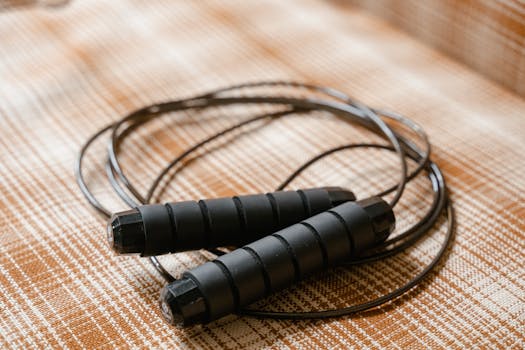Conquering Menopause Fatigue: A Comprehensive Guide
Nov 19, 2024
Menopause is a natural transition that marks the end of a woman's reproductive years. While this phase brings a sense of freedom, it often comes with a host of challenges, one of the most prevalent being menopause fatigue. This overwhelming sense of tiredness can be debilitating, affecting daily activities and overall quality of life. Understanding the causes and finding effective solutions is crucial for managing this condition.
What is Menopause Fatigue?
Menopause fatigue refers to the persistent and profound sense of exhaustion that many women experience during the menopausal transition. This fatigue is not just typical tiredness; it can be severe and relentless, often leading to a decrease in motivation and energy levels. Women may find themselves feeling drained even after a full night's sleep, which can be frustrating and disheartening.
Symptoms of Menopause Fatigue
The symptoms of menopause fatigue can vary from person to person, but commonly include:
Persistent tiredness: A constant feeling of exhaustion that doesn't improve with rest.
Difficulty concentrating: Often referred to as "brain fog," this can make it challenging to focus on tasks.
Mood swings: Emotional fluctuations can accompany fatigue, leading to irritability or sadness.
Sleep disturbances: Many women experience insomnia or disrupted sleep patterns during menopause, contributing to fatigue.
Causes of Menopause Fatigue
Understanding the underlying causes of menopause fatigue is essential for effective management. Several factors contribute to this condition:
Hormonal Changes
As women approach menopause, the body undergoes significant hormonal changes, particularly in estrogen and progesterone levels. These fluctuations can lead to various symptoms, including fatigue. Estrogen plays a crucial role in regulating sleep and mood, so its decline can disrupt sleep patterns and contribute to feelings of tiredness.
Sleep Disturbances
Sleep issues are common during menopause, often exacerbated by night sweats and hot flashes. According to research, women experiencing menopause may have difficulty falling asleep or staying asleep, leading to chronic fatigue. Addressing sleep hygiene is vital for combating menopause fatigue.

Stress and Lifestyle Factors
Life stressors, such as work, family responsibilities, and health concerns, can compound the fatigue experienced during menopause. Additionally, lifestyle factors such as poor diet, lack of exercise, and insufficient hydration can contribute to feelings of tiredness. Engaging in regular physical activity can significantly improve energy levels and overall well-being.
Nutritional Deficiencies
Nutritional deficiencies can also play a role in menopause fatigue. For instance, a lack of essential vitamins and minerals, such as B vitamins, vitamin D, and iron, can lead to decreased energy levels. Women should focus on a balanced diet rich in whole foods to support their health during this transition.
Strategies to Combat Menopause Fatigue
While menopause fatigue can be challenging, there are several strategies that women can adopt to help manage their energy levels effectively:
1. Prioritize Sleep
Improving sleep quality is crucial for combating fatigue. Consider the following tips:
Establish a bedtime routine: Create a calming pre-sleep routine to signal your body that it's time to wind down.
Limit screen time: Reduce exposure to screens at least an hour before bed to improve sleep quality.
Create a comfortable sleep environment: Ensure your bedroom is cool, dark, and quiet to promote restful sleep.
2. Maintain a Balanced Diet
A well-balanced diet can help combat fatigue:
Incorporate whole foods: Focus on fruits, vegetables, whole grains, lean proteins, and healthy fats.
Stay hydrated: Drink plenty of water throughout the day to prevent dehydration, which can contribute to fatigue.
Consider supplements: Consult with a healthcare provider about potential supplements to address nutritional deficiencies.
3. Engage in Regular Physical Activity
Regular exercise can boost energy levels and improve mood. Consider incorporating:
Aerobic exercises: Activities like walking, cycling, or swimming can enhance cardiovascular health and energy.
Strength training: Building muscle can improve metabolism and overall energy levels. Check out our guide on top lower body pull exercises for maximum strength and power.
Mind-body exercises: Practices like yoga and tai chi can help reduce stress and improve overall well-being.

4. Manage Stress
Stress management techniques can significantly impact energy levels:
Mindfulness and meditation: Practicing mindfulness can help reduce stress and improve focus.
Deep breathing exercises: Incorporate deep breathing techniques to promote relaxation and reduce anxiety.
Seek support: Connecting with friends, family, or support groups can provide emotional support during this transition.
5. Explore AI Personal Training Solutions
Getlila offers personalized fitness solutions powered by AI, designed to help women navigate the challenges of menopause. Our AI personal trainers can create customized workout plans that consider your energy levels, preferences, and goals. By incorporating regular exercise into your routine, you can combat menopause fatigue effectively. Learn more about how Getlila can support your fitness journey.
Frequently Asked Questions
How long does menopause fatigue last?
The duration of menopause fatigue can vary from woman to woman. For some, it may last a few months, while for others, it can persist for several years. The severity and duration of fatigue often depend on factors such as lifestyle, stress levels, and overall health. It's essential to address the underlying causes and implement effective strategies to manage menopause fatigue.
How to fight menopause fatigue?
To combat menopause fatigue, a multifaceted approach is recommended. This includes prioritizing sleep hygiene, maintaining a balanced diet, engaging in regular physical activity, managing stress, and exploring personalized fitness solutions like those offered by Getlila. Additionally, addressing any underlying medical conditions or nutritional deficiencies can help alleviate fatigue.
What is crashing fatigue during menopause?
Crashing fatigue, also known as "menopause crash," refers to a sudden and overwhelming sense of exhaustion that can occur during the menopausal transition. This type of fatigue can be debilitating and may be accompanied by symptoms such as brain fog, muscle weakness, and difficulty concentrating. It's essential to listen to your body and rest when experiencing crashing fatigue.

What medication is used for menopause fatigue?
While there is no specific medication solely for menopause fatigue, certain treatments may help alleviate the symptoms. Hormone replacement therapy (HRT) can help regulate hormone levels and improve sleep quality, potentially reducing fatigue. Additionally, medications for managing hot flashes, mood disorders, or sleep disturbances may indirectly help combat fatigue. However, it's crucial to consult with a healthcare professional to determine the most appropriate treatment plan.
Conclusion
Menopause fatigue is a common yet often overlooked challenge for many women. Understanding its causes and implementing effective strategies can significantly improve energy levels and overall quality of life. By prioritizing sleep, maintaining a balanced diet, engaging in regular physical activity, and managing stress, women can combat fatigue during this transition.
Getlila's AI personal training solutions offer unique benefits tailored to your needs, helping you regain energy and embrace this new phase of life. Don't let menopause fatigue hold you back; explore our services today and take the first step towards a more energized and fulfilling life.
Ready to Simplify Weight Loss?
Download the Lila app or visit getlila.com to start your journey. Experience the power of an AI-driven approach designed to adapt to your changing body and unique needs. Embrace holistic weight loss with Lila—because you deserve to feel strong, confident, and truly yourself again.
Disclaimer: This article is for informational purposes only and does not substitute professional medical advice. Consult a healthcare provider for personalized recommendations.
You should not have to do it all on your own











